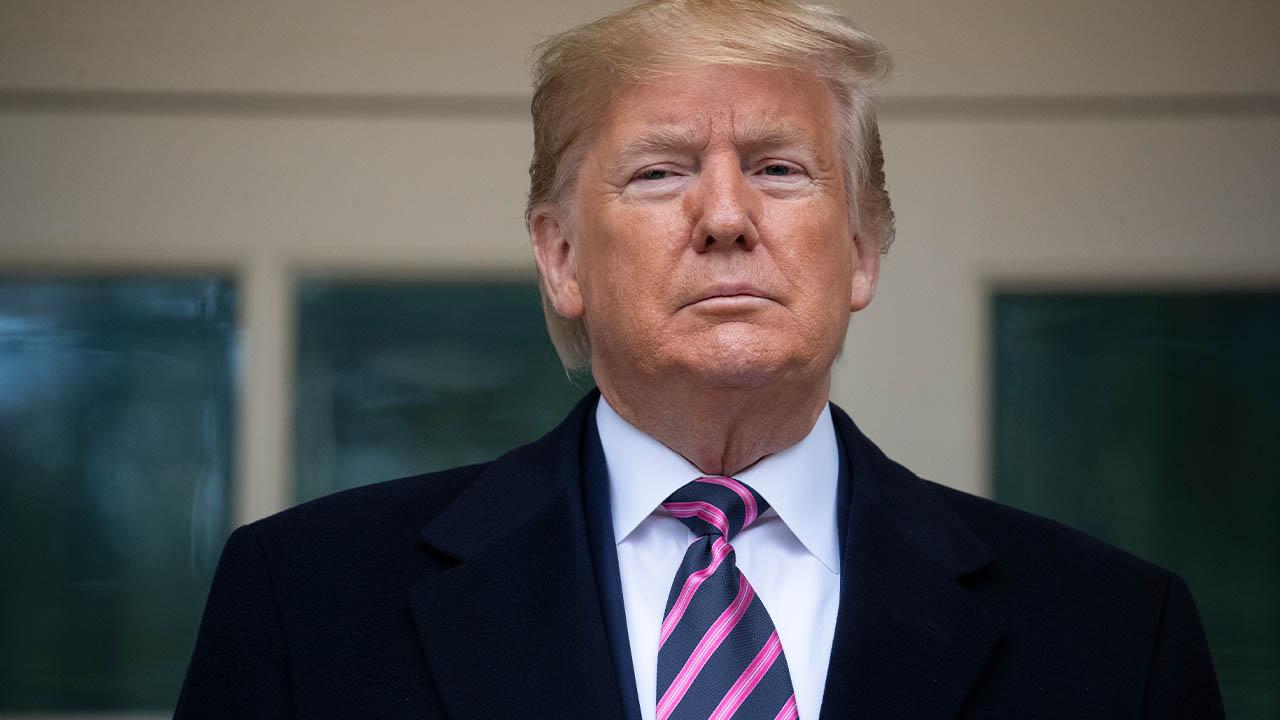What corporate America wants from Trump's State of the Union address
Business group doesn't want to hear about more tariffs on U.S. and foreign goods
The U.S. Chamber of Commerce wants to hear about infrastructure, innovation and the U.S. workforce during President Trump's State of the Union address Tuesday.
The business group's Executive Vice President Neil Bradley and Global Energy Institute President Marty Durbin said they hope not to hear about more tariffs on U.S. and foreign goods, or any kind of arguing about the 2020 election.
And they definitely don't want Democrats to propose new regulations that they say "kill innovation."
Infrastructure
"To state the obvious, our infrastructure is ... deteriorating," Durbin said during a phone call with reporters, adding later that while some people may be surprised if Congress passes infrastructure legislation in 2020, the Chamber of Commerce won't be.
BLOOMBERG RAMPS UP ATTACK ON TRUMP IN NEW INFRASTRUCTURE AD
Congress is taking steps in the direction of infrastructure legislation. Democrats are putting together a number of proposals for the House, Durbin said, and the Senate advanced the America's Transportation Infrastructure Act of 2019 in July.
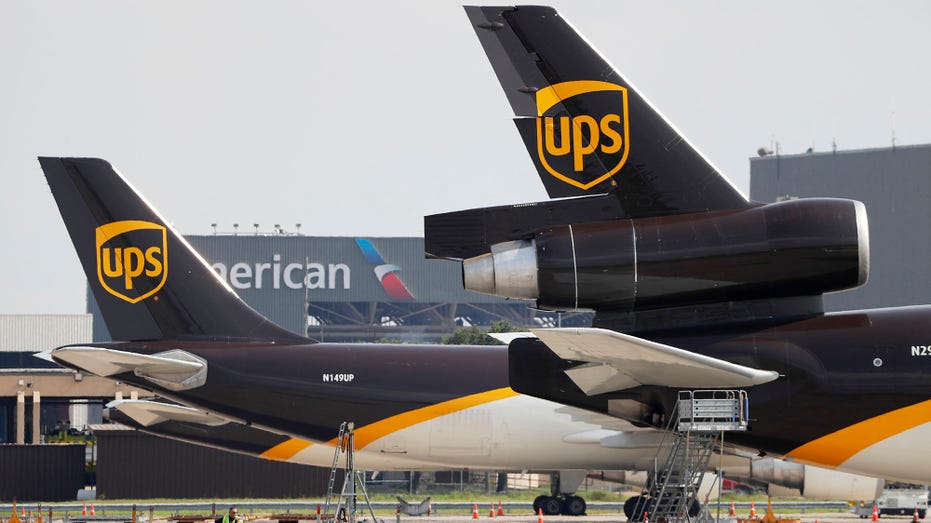
Workers prepare to unload a UPS aircraft after it arrived at Dallas-Fort Worth International Airport in Grapevine, Texas. (AP Photo/Tony Gutierrez, File)
The Chamber has a four-point plan for infrastructure modernization, including a modest increase in federal investments, opening more private financing options, building and maintaining the workforce and modernizing the permitting process for large infrastructure projects, Durbin said.
The White House announced in January that it is proposing a new rule called the "One Federal Decision," which aims to ease environmental regulation reviews under the National Environmental Policy Act (NEPA) that have not been changed in more than 40 years on certain projects that do not get significant federal funding.
The rule will make it easier to build pipelines, airports, mines and other types of infrastructure to benefit American workers and families, according to the administration.
Innovation
"There is strong, bipartisan support for a sweep of bills focused on climate and energy innovation," Durbin said, including battery disposal innovation, emission reductions, advanced nuclear options, carbon capture and more.
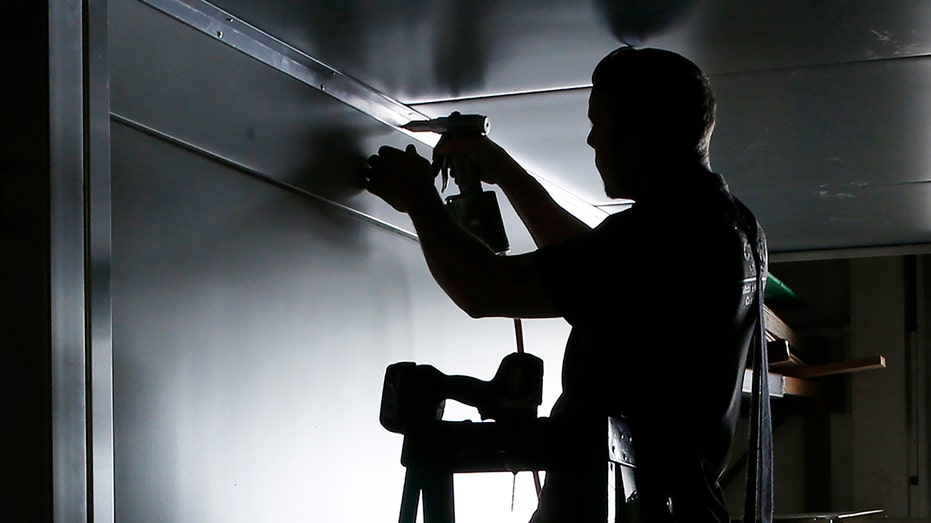
Employee Brett Petty works on a climate control plant sprouting system for Fodder Works at the Simple Country manufacturing plant in Grass Valley, Calif. (AP Photo/Rich Pedroncelli)
There are already about 35 innovation-focused bills ready to be reviewed in the Senate, he added. The bills aim to help Americans discover new and cost-effective ways to advance energy infrastructure in ways that do not harm the environment.
"The bottom line is: This should be the most significant climate and energy legislation passed in a decade ... to address the global climate challenge," Durbin said.
Workforce
U.S. employers added 304,000 jobs in January, soaring past Wall Street's expectations for an increase of 165,000 jobs, seemingly brushing off a 35-day government shutdown as investors braced for mixed results.
It was the 100 straight month of gains.
The unemployment rate also climbed to 4 percent from 3.9 percent, while the labor force participation rate rose slightly to 63.2 percent. Average hourly earnings, meanwhile, rose by 3 cents to $27.56. Over the year, average hourly earnings have increased by a total of 85 cents, or about 3.2 percent.
HOW WILL THE 'SPACE RACE' PLAY OUT IN 2020?
One downside of so many jobs being added to the U.S. market, however, is the fact that there are too many available spots and not enough workers to fill them, Bradley explained.
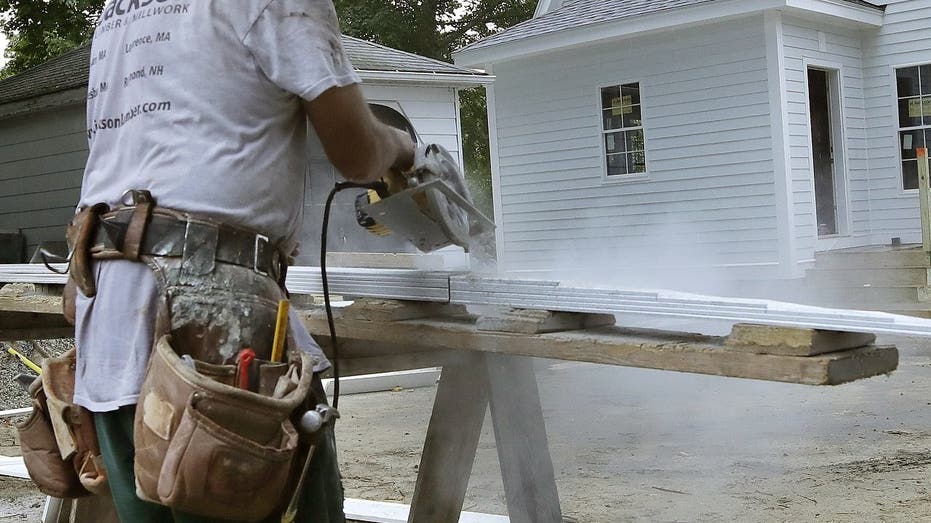
A carpenter works on a construction site in North Andover, Mass. (AP Photo/Elise Amendola, File)
There is evidence of small and large businesses alike that can't find enough workers to fill their open spots. Even when the numbers are stretched, the U.S. economy "can only fill about nine out of every 10 open jobs," Bradley said.
"We hope to hear the president talk about this workplace shortage that we have," he said, adding that the president should also bring up ways for the country to focus on stopping unprecedented illegal immigration.
Regulations
On the other side, Congress' consideration of legislation that promotes innovation regarding ways to both promote new, climate-conscious infrastructure is Congress' proposals to control pricing, which Bradley said stifles innovation.
BUTTIGIEG'S INFRASTRUCTURE PLAN IS THE BEST OUT OF ANY CANDIDATE: FORMER OBAMA ADVISER
He specifically mentioned price controlling in medicine and environmental regulations that tend to hold U.S. innovators back.
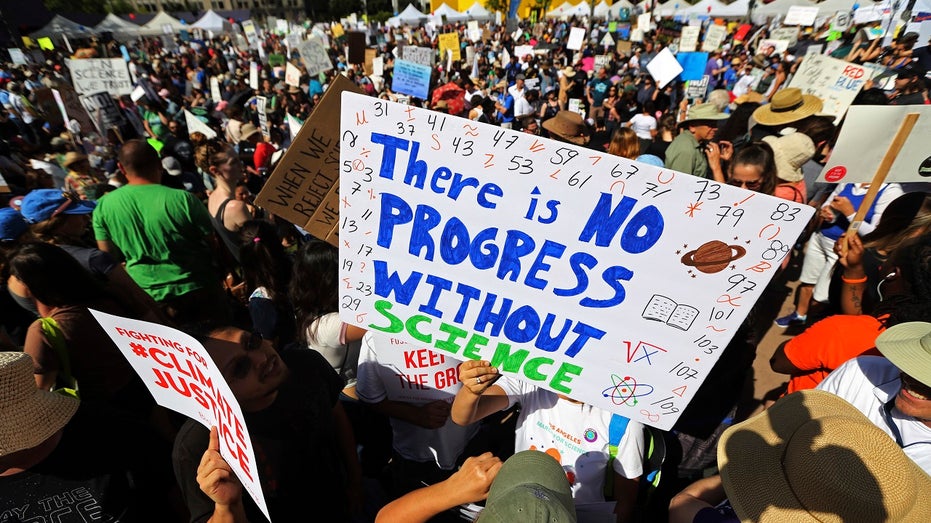
Demonstrators at Pershing Square in downtown Los Angeles, take part in the March for Science, Saturday, April 22, 2017. (AP Photo/Reed Saxon)
Trump said during a Jan. 9 press conference that the administration "will not stop until America's infrastructure is the envy of the world again," adding that the regulations in place today have slowed America's progress, and projects end up costing "five times as much" as they would have without having to meet such costly and complex requirements needed for reviews.
Election
Durbin and Bradley agreed that the State of the Union address should not be seen as an opportunity for the president or any member of Congress to take digs at each other or discuss the 2020 election. The campaign trail, in general, should be off-limits, they said.
GET FOX BUSINESS ON THE GO BY CLICKING HERE
The address "really should be about what we can accomplish in 2020," Bradley said. "We have a lot of problems that need addressing."
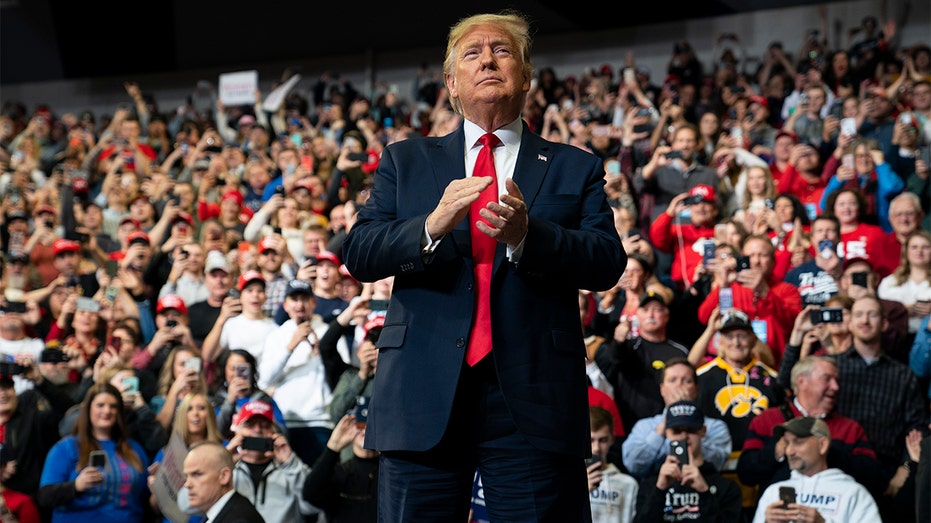
Trump arrives to speak at a campaign rally Thursday in Des Moines, Iowa. (AP Photo/ Evan Vucci)
If anything, there should be a focus on how politicians are going to bridge the partisan divide in the country right now, Bradley said, adding that the tone of Trump's and the Democrats' remarks will be important.
Tariffs
If tariffs are mentioned at all during the address, they should be mentioned in regard to how the administration plans to cut back tariffs on Chinese goods so China, in return, will lower the costs of products U.S. businesses buy from China, as well as China's tariffs on U.S. goods.
"Tariffs are paid by consumers and businesses" rather than the country that they are implemented on, Durbin explained, adding that the tariff war between the U.S. and China "was the chief cause" behind the U.S. manufacturing and agriculture recession last year. In 2019 alone, the U.S. government imposed tariffs on nearly $400 billion worth of goods.

This file photo shows rows of soybean plants in a field near Bennington, Neb. (AP Photo/Nati Harnik)
"We need to solidify trade deals," he said. "Let's focus on trade and not tariffs."
Trump and Chinese Vice Premier Liu He signed Phase One trade agreement of a U.S. trade deal on Jan. 15, after nearly 18 months of a simmering tariff war. The deal was the first step toward a more comprehensive trade agreement between the world's largest economies and has been in the works since October.
CLICK HERE TO READ MORE ON FOX BUSINESS
As part of the trade deal, Beijing agreed to purchase $200 billion worth of U.S. goods over the next two years, including a $40 billion purchase of U.S. agricultural products, though China has never purchased more than $26 billion worth of agricultural goods from the U.S. in a single year, according to Reuters.
The U.S. agreed to reduce tariffs on Chinese products, though it is expected to keep tariffs on about $380 billion in goods.
Bradley said the most important thing Trump can do now to ease the harmful effects the U.S.-China trade war has had on many Americans is to reach a Phase Two agreement as soon as possible.
While there is a sense of urgency, however, China's coronavirus will complicate things, he said.




















